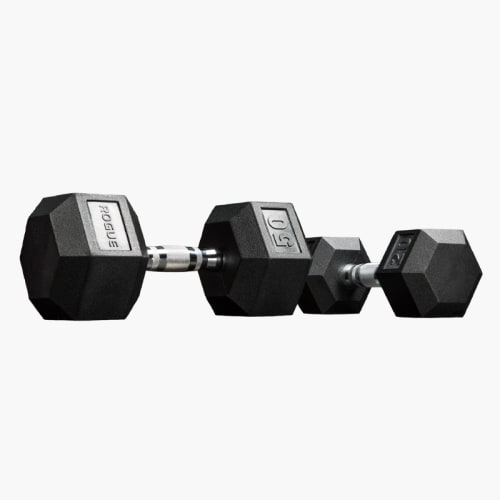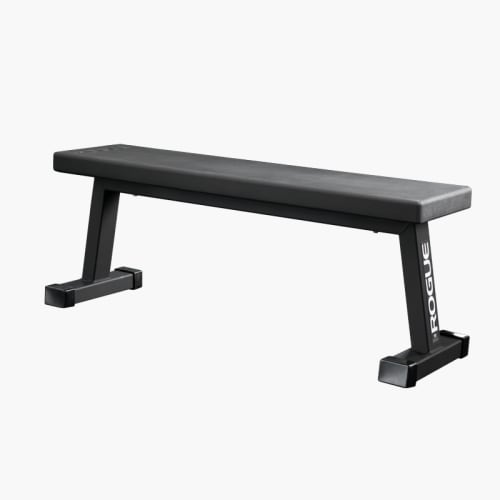Which is More Effective: Split Squat vs Bulgarian Split Squat
The split squat and the Bulgarian split squat are both exceptional exercises that can be used in a wide variety of training programmes. However there are some rather large differences between the two that will be important to understand if you are looking to make logical exercise selections. In this article I hope to explain the differences between the two exercises and provide insight into when you might want to us them most effectively for your training.
Get weekly roundups of the best training tools in your inbox, every Monday.
No spam – just thoughtful training advice
- What Is A Split Squat
- What Is A Bulgarian Split Squat
- Equipment Required For Bulgarian Split Squats
- Similarities Between The Split Squat and The Bulgarian Split Squat
- Both Are Uni-Lateral Squat Variations
- Differences Between The Slit Squat and The Bulgarian Split Squat
- Range of Motion
- Balance and Stability
- When Is The Split Squat More Effective
- Beginners and Intermediate Individuals
- Strength Training
- Rehabilitation
- When Is The Bulgarian Split Squat More Effective
- Hypertrophy for Advanced Individuals
- Balance and Stability Training
- Strength Training for Very Elite Individuals
- Which Is More Effective: Split Squat vs Bulgarian Split Squat
What Is A Split Squat
A split squat is probably the most well known lunge variations. It involves finding the top of lunge position, with one foot in front and one foot back then squatting downwards so that the knee gently touches the floor. Then lifting either body weight or bodyweight with an external load, back to the start position. The split squat can also be called the squat in lunge and it can be performed with a large variety of equipment.
Buy Barbells ↗
What Is A Bulgarian Split Squat
The Bulgarian split squat is very similar to the split squat, the only difference being that the back foot is raised to a bench. Raising the back foot to the bench makes the traditional lunge position much more challenging, as I will discuss below.
Buy Dumbbells ↗
Buy Barbells ↗
Equipment Required For Bulgarian Split Squats
Similarities Between The Split Squat and The Bulgarian Split Squat
Both Are Uni-Lateral Squat Variations
The split squat and the Bulgarian split squat are extremely similar exercises that work broadly the same muscle groups. This is because they both move through the squat (knee flexion) movement pattern on a single leg. Single leg squat variations all require engagement from all the muscles in the lower body and some level of balance and stability, both the split squat and the Bulgarian split squat are not exceptions to this rule. Therefore when we write a training programme to either improve muscle mass or strength in the lower body both these exercises can create these adaptations and will be under consideration.
Differences Between The Slit Squat and The Bulgarian Split Squat
Range of Motion
The Bulgarian split squat lengthens the range of motion of the lunge movement. This means that the Bulgarian split squat moves through a further range of motion than the split squat. This again is another reason why the Bulgarian split squat is more difficult than the split squat. This factor again is both a positive and a negative as I will discuss below.
Balance and Stability
The Bulgarian split squat is much more challenging than the traditional split squat in terms of balance. This is due to the foot being placed on a bench, meaning the back foot cannot help with balance as much. This makes the Bulgarian split squat far more difficult which can be both a positive and a negative.
When Is The Split Squat More Effective
Beginners and Intermediate Individuals
The Bulgarian split squat is simply too challenging for the majority of individuals. It has a very high prerequisite level of strength and stability that most individuals do not have to perform it with bodyweight let alone with heavy weights.
The split squat (squat in lunge) however is far more effective for beginners and intermediate individuals. It will allow them to build strength and stability in the lunge position under appropriate loading strategies. Individuals should only move to the Bulgarian split squat once they have mastered the more basic exercise of the split squat.
Strength Training
In my opinion, the Bulgarian split squat challenges balance to such an extent that it should not be used for strength training. Yes the range of motion is further, but this comes at the risk of injury that just isn’t necessary for successful progression. This therefore makes the split squat more effective for all individuals when looking to build strength in the single leg squat position.
Rehabilitation
As you have probably realised the Bulgarian split squat is a very challenging exercise. For individuals who have been injured in the knee or the ankle and are moving towards rebuilding balance and stability, it should be the very last step on the road the recovery. Whereas the split squat can and should be used much earlier on int he process as it requires balance and stability just to a much lesser extent.
When Is The Bulgarian Split Squat More Effective
Hypertrophy for Advanced Individuals
The fast that the Bulgarian spit squat moves through a further range of motion makes it more effective for hypertrophy training. This is because when we are performing hypertrophy and strength training the further the range of motion the more effective the exercise is.
However, when we are performing hypertrophy training, we are also looking to accumulate the highest amount of fatigue possible in the muscle to create a potent stimulus. If we find the Bulgarian split squat difficult because we struggle to balance, then accumulating this fatigue will be impossible, making it much less effective than the split squat. This is why the Bulgarian split squat is only effective for advanced individuals for hypertrophy.
Balance and Stability Training
The Bulgarian split squat challenges the balance and stability of the knee and the hip much more than the split squat. Due to the back foot being elevated on a bench, the general position is much less stable, this therefore creates balance and stability adaptions leading to progress in these physiological characteristics.
Strength Training for Very Elite Individuals
Extremely advanced individuals with over 10 years of training under their belt might be able to consider using the Bulgarian split squat for single leg strength work Strength work consists of performing 5 repetitions or lower with challenging weights. The Bulgarian split squat puts the body in a stretch position that is also unstable, so performing strength work here could increase the risk of injury. Honestly I do not think the benefits outweighs the costs in this situation, but for some very select individuals, getting strong through this range of motion could be beneficial.
Which Is More Effective: Split Squat vs Bulgarian Split Squat
Neither is better. Both the split squat and the Bulgarian split squat have their use cases when they are more or less effective. A Bulgarian split squat for an elderly individual who has just started resistance training is a terrible exercise, but for an athlete looking to build balance and stability in their knees and hips, it’s incredibly effective. The split squat is “easier” than the Bulgarian split squat, but this just makes it more appropriate for when an individual is working on strength training. Try and not think that one exercise is better than another, just that they are better in different scenarios.
If you enjoyed this resource you can find more below or try Programme, a fitness app that plans every workout for you – based on your progress, equipment and lifestyle.
This resource was written by Sean Klein. Sean Richard Klein a BSc in Sports Science with Management from Loughborough University. He owns a gym in Bayonne France, CrossFit Essor, which runs group classes and a Personal training studio.
Sean Klein



